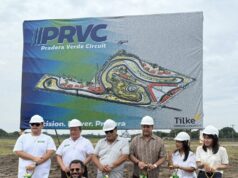“In various surveys, such special privileges (in economic zones) never cropped up as a concern among foreign investors in the Philippines,” Balicasan said during the Regional Scientific Meeting held by the National Academy of Science and Technology (NAST) here.
Under the proposed Package 2 of the Tax Reform for Acceleration and Inclusion (TRAIN 2) Law, the mere five percent gross income earned (GIE) being given to investors at economic zones and freeports would be scrapped in favor of corporate tax lowered from 30 to 25 percent all over the country. Reports on this have fueled speculations of foreign investments flight should the policy be implemented.
But Balisacan, an economist who used to head the school of economics of the University of the Philippines, doused this fear, pointing out that foreign investors’ concerns have pivoted consistently on issues related to ease of doing business in the country, infrastructure, and peace and order
Balisacan is the first chairperson of the PCC, the country’s antitrust agency enforcing prohibitions against anti-competitive business acts and practices.
He lamented that while the government has undertaken steps to curb red tape in processing documents for investors in the country, other competitive countries have done better.
Amid continuing controversies on the proposed Phase 2 of the TRAIN Law which some senators now want suspended amid inflation surpassing projections at over 4.5 percent, the Foundation for Economic Freedom (FEF) has expressed support for “the rationalization of fiscal incentives under TRAIN 2.”
“We commend the major principles proposed to rationalize fiscal incentives, namely: 1) to link incentives to performance; and 2) to limit the focus of incentives to sectors that will generate economic benefits such as employment, exports, etc.,” it said in a statement yesterday.
FEF expressed support for the proposed items under TRAIN 2, including “phasing out of all existing incentives except for a subset of companies which are employment- intensive, and are likely to move to other countries without incentives and the granting of new incentives outside of this small subset, which will be centralized in an Economic Development and Fiscal Incentives Review Board, where employment and contribution to economic development shall be the paramount considerations; rules for the granting of incentives should be clear, transparent, and minimizes discretion from the government bureaucracy.”
The group also batted for Phase 2 proposals that also include “phasing out of incentives for redundant investment, i.e. investment will likely be done anyway even without incentives, such as for mineral exploration; and accompanying TRAIN 2 with administrative reforms that will improve the professionalism, efficiency, and accountability of taxing authorities.”
“We support further the retention of the 40% OSD (Optional Standard Deduction), rather than a reduction to 20%, in line with the principle of making tax compliance easy and simple,” it added.
FEF also said “we support the reduction in the corporate income tax rate to 25% or even lower, should government finances allow it, in order to align the country’s tax rates with the rest of ASEAN.”



